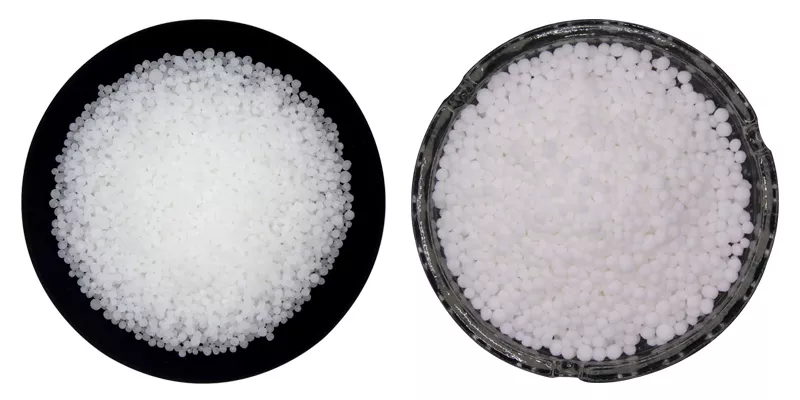Introduction to Nature Safe Fertilizers
Organic fertilizers are vital in ensuring sustainable agriculture; they have multiple benefits for soil health and plant growth. They are mainly derived from natural sources including plant, animal and mineral products hence making them environmentally safe organic fertilizers. They gradually release nutrients into the soil in a slow and steady manner that can be easily absorbed by plants.
Today “nature safe” is an important term indicating that the product does not harm the ecology. Dr Jane Goodall, a well-known environmentalist, explains: “Every single person matters. Every single person makes a difference. Every single person has a role to play.” Another proof of it being eco-friendly lies in its use of eco-friendly alternatives such as natural fertilizers.
There are numerous advantages of using these kinds of organic fertilizers in gardening which include improvement of soil structure, increase in microbial activities and reduction of chemical run-offs leading to healthier garden environments. These fertilisers do not contribute to soil acidification or mineral depletion unlike synthetic ones thereby promoting long-term soil fertility and robust plant growth. This all-encompassing approach provides food for plants as well as creates a balanced ecosystem notable for sustainable gardening practices.
The Significance of Environmentally Friendly Methods Of Fertilization
The environmental impact resulting from traditional versus natural fertilizer use presents an argument for adapting green practices in agriculture and gardening (Reese-Petersen 38). The unconventional type may then cause excess release of nutrients into water systems resulting in eutrophication, which often leads to harmful algal blooms leading to death of aquatic ecosystems such as fish ponds (Harrison 123). In contrast nature-safe fertilisers release nutrients slowly minimizing runoff risks ensuring water quality preservation.
Sustainability in gardening practices therefore does not only consider the immediate impacts on plants but also future environmental health. According to professor David Pimental from Cornell University “organic fertilizer applications not only reduce the input of harmful chemicals into the environment but also improve soil fertility by promoting the activity of soil microorganisms.” These micro-organisms are important in nutrient cycling, improving soil structure and enhancing plant health.
By selecting natural fertilizers over conventional ones, gardeners and farmers choose sustainability as their practice enables to keep up and grow rich local ecosystems instead of utilizing them. This commitment to eco-friendly methods is congruent with global climate change mitigation strategies as well as environmental stewardship initiatives thus making it a critical consideration for any person who cares about the future of our planet.

What distinguishes Nature Safe organic fertilizers from the rest?
The ingredients that make up nature safe organic fertilizers are what contribute to their uniqueness and the value they add to soil fertility and crop development. Typically, these fertilizers have their main constituents drawn from natural sources such as plants like alfalfa meal and cottonseed meal, animals such as fish emulsion and bone meal, or minerals such as rock phosphate and green sand. These inputs are not just renewable but also able to decompose which means that their presence does not lead to long-term environmental damage.
The magic of nature safe organic fertilizer lies in the way these elements blend together resulting in the benefits they confer on both the plant and soil. To illustrate, bone meal is abundant in phosphorus necessary for root formation while alfalfa meal increases leaf growth through nitrogen provision. Nonetheless, unlike synthetic varieties which may deliver nutrients in a form not immediately acceptable by plants, organic ones will improve soil structure, enhancing water retention capacity and nutrient replenishment over time.
Furthermore, inclusion of organic matter in these fertilizers enhances soil microbial population important for ensuring better cycling of nutrients among other aspects for improved plant’s nutrient utilization. Quoting Dr Elaine Ingham an expert in soil microbiology regarding organic farming “life in the soil determines health of your plants”. By using Nature Safe Organic Fertilizer users end up nurturing both plants themselves while improving soils by making them fertile naturally so it can withstand pests & diseases.
Such a holistic method of application with nature safe fertilizers offers an effective approach towards sustainability that does not just address instant requirements of crops but also guarantees longevity to garden ecosystem health.
Advantages of Utilizing Nature Safe Organic Fertilizer
Benefits of using nature safe organic fertilizers go beyond immediate feeding of garden plants. These substances are key to enhancing soil fertility, therefore promoting a healthy environment which has both short and long term advantages.
Better Soil Fertility: The addition of organic matter by organic fertilizers helps in soil structure formation. This matter not only feeds the microbial life but also makes it more friable and increases its water holding capacity. In addition, organic matter content can help buffer pH imbalances hence making the soil environment more suitable for plant growth. “Building healthy soils through organic fertilizers will lead to significant improvements in water and nutrient uptake” says Dr Christine Jones, a renowned soil ecologist.
Ecosystem Health: Nature safe organic fertilizers foster sustainable farming by reducing reliance on chemical inputs that can harm wildlife and beneficial insects. By maintaining natural soil chemistry and avoiding pollutant runoff, these fertilizers protect local waterways and wildlife habitats. It is based on permaculture principles as well as integrated pest management which emphasize environmental responsibility with respect to resource utilization.
Long-term Benefits for Garden Plants and Produce: When plants are grown using organic fertilizers they tend to have stronger root systems thus diseases resistance as well as pests eradication hence there is reduced use of synthetic pesticides as well as fungicides . Moreover, use of organic fertilizers has been linked with better nutritional content and taste in garden produce thereby proving healthier to the consumers overall. This issue assumes particular significance for those who practice organic gardening or farming because they want their produce to be highly nutritious and deliciously flavored.
This combination results in gardens that are not just lush but also resilient towards changes over time. One feels part of a larger whole when one utilizes nature safe fertilizer.
Top Rated Kinds of Environmentally Friendly Organic Fertilizers
Within this category there are different types of nature safe organic fertilizers that are specifically made to suit the needs of various gardens. This awareness will help gardeners to go for the best product that is suitable for their gardens.
Liquid Organic Fertilizers: They are favored because they can be easily applied and quickly absorbed by plants. Liquid fertilizers work well in providing fast nutrition during crucial periods such as flowering or fruiting. Seaweed extracts and fish emulsion fall under this group, which not only work but also encourage good microbial activity in soils.
Granular Organic Fertilizers: Slow-release in nature, they are usually applied on plant bases or incorporated into soil prior to planting. Such granules break down over a period of time with the action of microorganisms thus supplying nutrients consistently. Examples include bone meal, blood meal and composted manure each offering distinct benefits such as high phosphorus content or rich nitrogen sources.
Pelleted Organic Fertilizers: These pelleted forms are designed for convenience more so when covering large areas, since they are compacted piles that eventually decompose after some time elapses. They are particularly favored by commercial organic farmers who want an easy way out during application.
Brands like Espoma, Dr. Earth and Jobe’s Organics top market leaders when it comes to provision of highest quality nature safe organic fertilizer. These brands enjoy great reputation due to their commitment towards ecological balance alongside efficiency in their products’ performance.
Choosing the right type of organic fertilizer involves considering the specific needs of the garden, whether it should be easy or hard when applying it and what will be long-term contribution towards maintaining health in the garden ecosystem. Gardeners can choose liquid, granular or pelleted varieties that promote strong plant growth while adhering to environmentally friendly principles.

How to Properly Apply Nature Safe Organic Fertilizer
To receive the utmost benefit from nature safe organic fertilizer and ensure a flourishing and productive garden, you must apply it properly. The correct way of applying it can greatly influence the effectiveness of the fertilizer as well as the general health of the garden.
Tips for Effective Application:
Soil Test First: It is important to test soil before fertilizing, in order to know its nutrient level and pH. This is useful in determining exact needs for your garden.
Abide by Application Rates: Different types of organic fertilizers have suggested application rates depending on the type of plant and stage of growth. This, therefore, necessitates adherence to these guidelines so as not to over-fertilize, thus causing nutrient burn or other soil imbalances.
Apply at the Right Time: Timing for applying fertilizer can greatly affect how plants grow. For many gardens, early spring applications of organic fertilizer stimulate vigorous growth throughout the growing season. In some instances, additional applications may be needed during mid-season for replenishing nutrients.
Common Mistakes to Avoid:
Over-Fertilizing: More may not always mean better. Overuse of any type of organic fertilizers can result in nutrient leaching, soil toxicity, and harm to plants.
Ignoring Weather Conditions: Do not apply where there are heavy rain forecasts soon since this might wash away all nutrients before absorption takes place.
Improper Mixing: Mix granular or powdered fertilizers into the soil or cover with a thin layer of soil to facilitate the release of nutrients so that they are not blown away by the wind.
By following these practices while avoiding common mistakes, a gardener can improve upon his/her already efficient nature safe organic fertilizer, thereby resulting in fruitful gardens that are healthier than before. Always adjust techniques based on specific conditions and requirements particular to your own garden’s location.
Conclusion
Conclusively, utilizing nature safe organic fertilizer goes beyond the choice in the garden; it is a commitment to sustainable and eco-friendly practices that are beneficial to our gardens and also the environment as a whole. The benefits of using nature safe organic fertilizers range from improved soil fertility, increased biodiversity to producing healthier more nutritious plants.
The importance of sustainability becomes even clearer as we continue to experience these environmental challenges. Choosing nature safe organic fertilizers for gardeners and farmers is an active step towards reducing their ecological footprint, preserving natural ecosystems and supporting a healthier future for our planet.
By accepting these green solutions you become part of a cycle of sustainability which will benefit the current as well as future generations. Let us keep cultivating with care and responsibility so that our gardens remain alive and productive spaces indicating our dedication in environmenal stewardship.
Here are three references related to nature safe organic fertilizers:
- PubMed: This resource offers access to a vast database of biomedical literature, which includes research on the environmental and health impacts of various types of fertilizers, including organic options. You can explore specific studies that detail the benefits and methods of using organic fertilizers in agriculture.
- USAGov: While primarily a government portal for services, USAGov can be a starting point for locating federal resources and guidelines related to organic farming practices and sustainable agriculture that might utilize nature safe organic fertilizers.
- Centers for Disease Control and Prevention (CDC): The CDC offers resources on public health and safety, including the impacts of agricultural practices on health. Here you can find information related to the broader environmental and health effects of using various types of fertilizers.







